How to reduce household waste – keeping Australia beautiful can begin at home
If you’re concerned about the environment, you’ve likely looked at the waste produced in your home and wondered how to reduce household waste.
There’s no simple or quick answer to this problem. The solution lies in many actions that we can all take. These changes, if taken seriously, make a very real difference to the state of the planet.

Australia has one of the world’s most beautiful and diverse ecosystems – this means it’s highly vulnerable
When we begin to look at the threats to the habitats of our native plants and animals, it can be easy to feel overwhelmed.
After all, what can one person do about big changes to the landscape by huge corporations? But if we look at the problem on a smaller scale, we can begin to make changes. These changes may balance out the long-term damage.
What are the most dangerous threats to Australia’s ecosystems?
The most recent report on the environment was The State of the Environment report in 2021. It included some sobering facts, including that the environment in Australia is “poor and deteriorating” due to “climate change, habitat loss, invasive species, pollution and resource extraction.
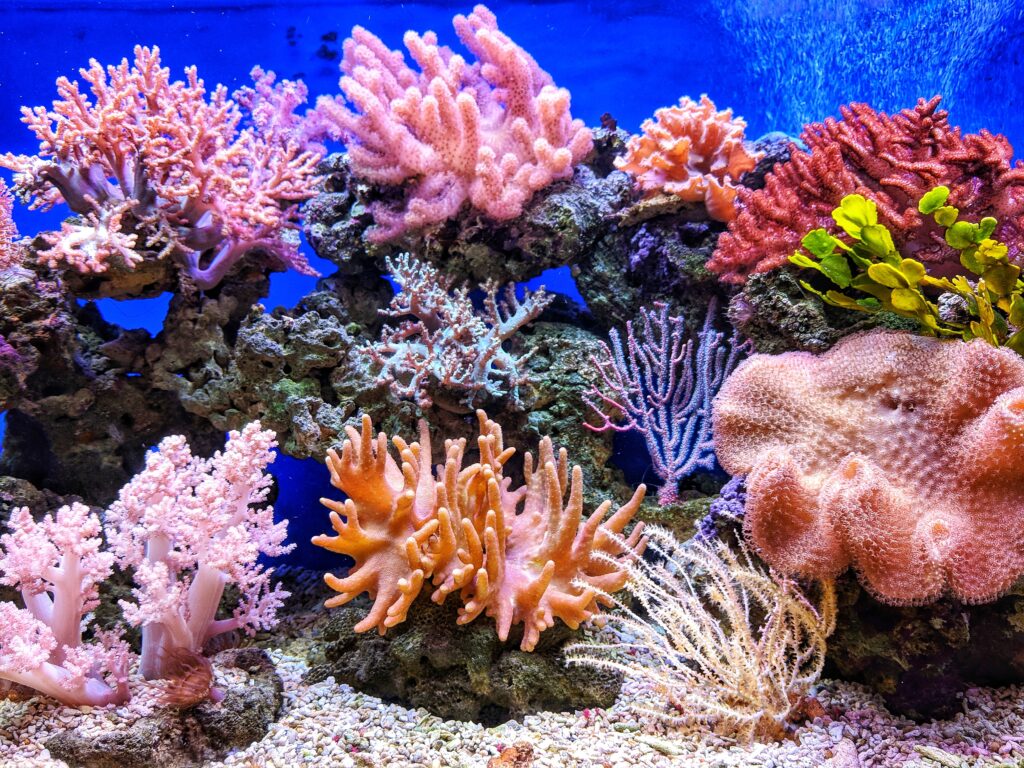
This includes both water and land, and the factors which are affecting them the most are climate change and marine plastics, both of which are threatening many species of animals and plants, including marine life.
Although our emissions have been recorded as less than in previous years, many experts say that the numbers are not declining at a rate that will ensure recovery.
How to reduce household waste is a big part of the conundrum.
What can we do?
It may feel hopeless as an individual, but if every resident in Australia begins to make small changes to their lifestyle and consumption of energy, then we will indeed see a difference. Looking at how to reduce household waste is one way of tackling the issues.
First and foremost, everyone must try to reduce their electricity and water use in addition to recycling and re-using more than ever before.
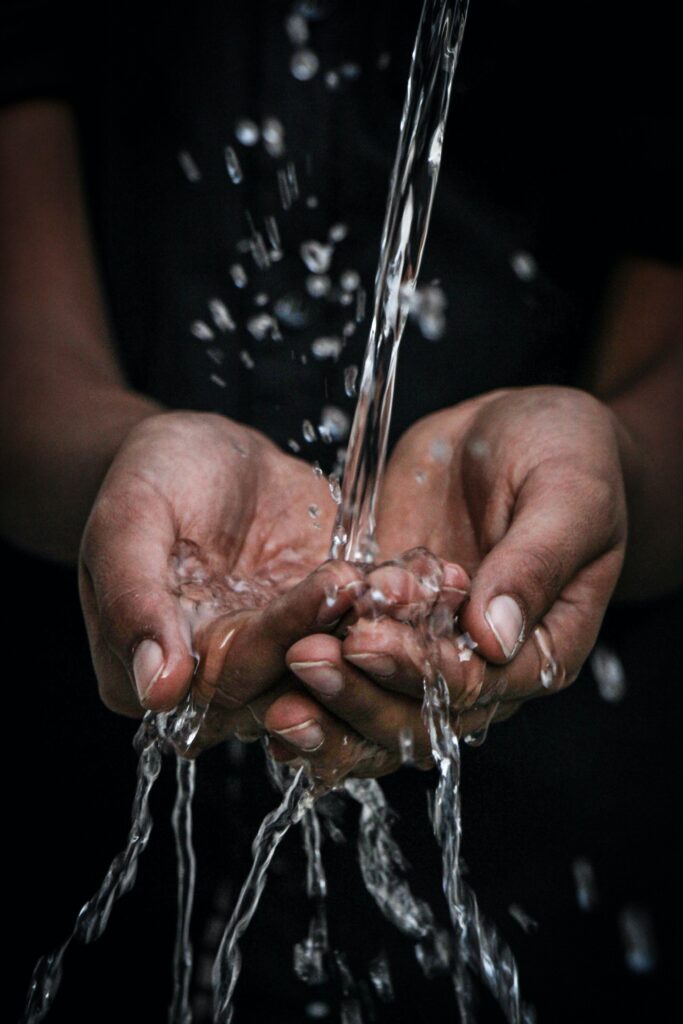
Reducing water usage will lower emissions
How does water usage affect the environment?
Easy ways to reduce your water usage
Here are some simple, cost-effective ways to reduce your water consumption
Plant native trees, shrubs and flowers and reduce household waste
These will require a lot less water than non-natives and often look much more appropriate in the landscape than European varieties such as roses.
Consider a no-lawn garden
This is much easier than you might imagine. We’re all so familiar with a green lawn front and back, but is it necessary? Not really, no. There are many alternatives, including planting native grasses such as weeping grass or wallaby grass, as well as creeping plants such as blue star creeper and elfin thyme. These need much less maintenance and are drought-friendly.
Install new taps, showerheads and toilets
Yes, it’s a big expense but you will save money on your water bill for years to come. The newer style of taps and showerheads are designed to ensure much less water usage.
Take a bath not a shower
Baths use much less water than the average shower will use.
Reuse water
Plants inside your home aren’t fussy and will be happy to be watered with your used bathwater as long as there isn’t a lot of soap in it.
But it’s not just water that we need to think about. There’s also plastic and its amount, which is still being used in Australia despite the ban on single-use plastics. Looking at how to reduce household waste has to begin with plastics.
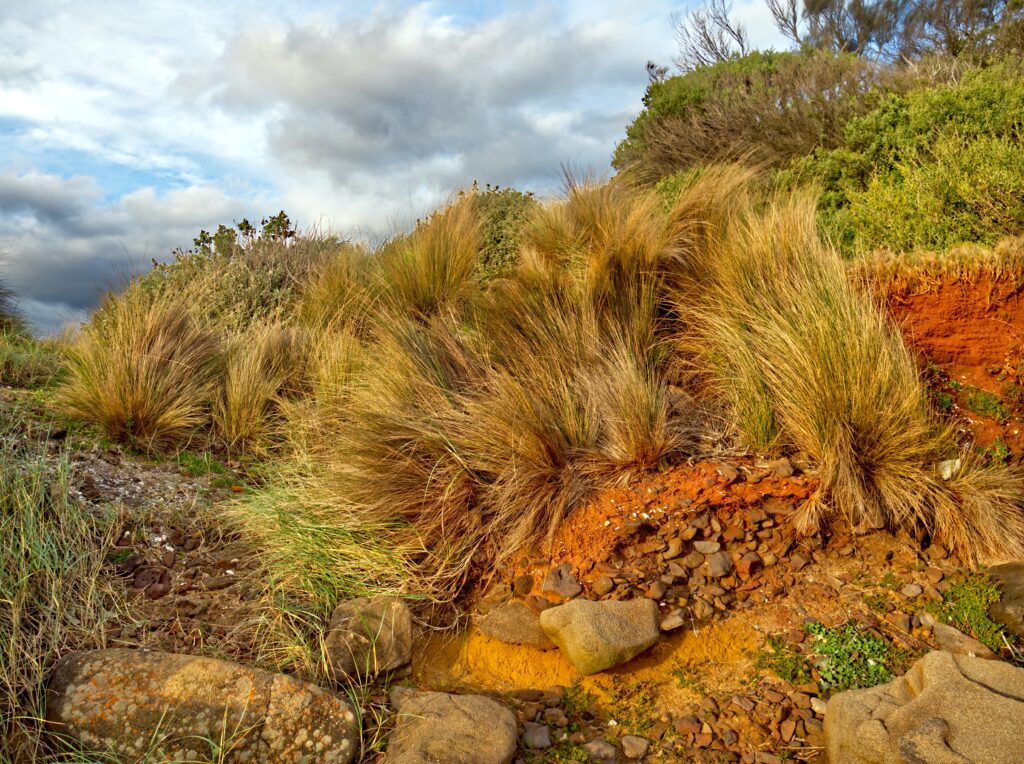
Native grasses can be used instead of traditional lawn
Plastic – how to use it less and how to reduce household waste
When plastic was first invented, it was hailed as a miracle material. Durable, wipeable, and suitable for many applications, it seemed like a low-cost alternative to wood, ivory, metal and porcelain materials. Everyday items such as pens, cosmetics, toys, jewellery, fixtures, and fittings were quickly produced with plastic instead of the more expensive materials of the past.
It didn’t take too long for us to discover the downside of plastic – and before anyone knew what was going on, the oceans and landfills were full of it.
Microplastics
Microplastics are dangerous and can now be found inside most land and sea-dwelling animals. In addition, of course, plastics have made their way into our oceans and now threaten wildlife daily.
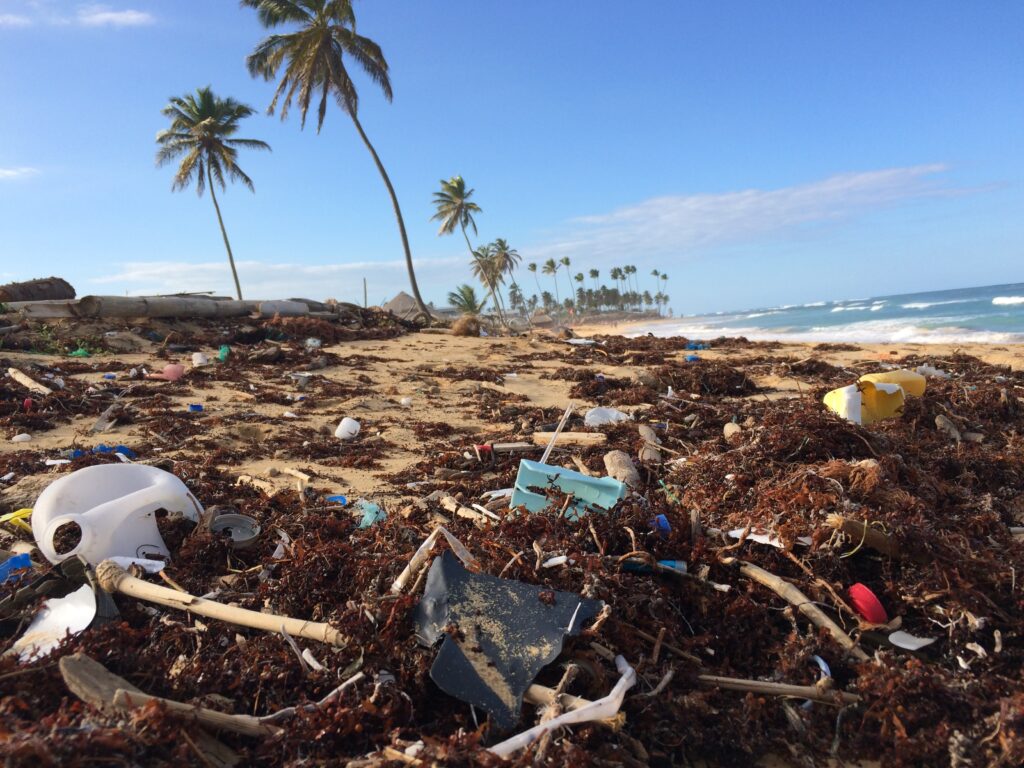
Plastics are a real threat to wildlife
When we want to look at changing our own habits, it takes effort to consider all the small alterations that we can make in our daily lives.
For example, it’s tricky to think about changing some things, such as milk, which is always sold in plastic cartons. What can we do about that? Most households need to use milk in some form or other, and we can’t refuse to buy it as it is.
But we can certainly enforce stricter rules at home regarding the recycling of the plastic cartons used. Some households recycle with great care, whilst others do not.
Ensure every family member puts empty, washed cartons into the recycling bin at home. These can then be removed by waste collection companies and taken away to be recycled.
Consider before buying
Throwing them into the bin means they will end up in a landfill, where they will take many years to break down.
Similarly, think about products we all buy, such as toys, cosmetics, tools and gadgets. Should we be purchasing these when they are made out of plastic?
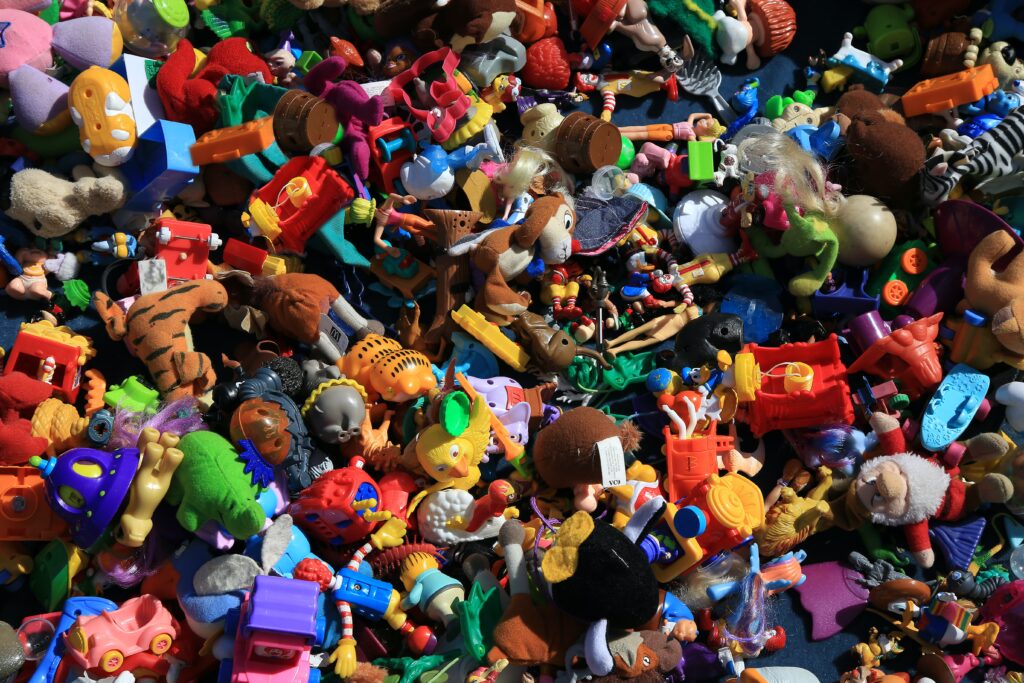
There are alternatives to cheap plastic toys
There are alternatives. Many cosmetic companies offer refillable containers these days. You can simply take your empty pots and bottles in to be topped up. This is far more preferable than constantly buying new plastic bottles of shampoo.
Similarly, children’s toys. Yes, the bright, plastic ones may appeal to young children, but it might be a better choice to buy these second-hand. Those items are already in the eco-system; the more use they have, the better.
The changes we can all make at home could greatly impact the environment if everyone takes them seriously.
The same goes for the workplace, of course. The planet’s health is our responsibility.
Skip bins and recycling – how to reduce household waste
When you have excessive waste at home or work, there are only so many options you can take.
You can either take it to the dump or book a skip bin.
A skip bin represents a much more eco-friendly way to remove rubbish. Most people must take multiple car trips to the dump, impacting the environment. A skip bin makes only two journeys – one to drop off and one to pick up.
Not only that, skip bin suppliers like Best Price Skip Bins take extreme care to ensure no waste is spilled or lost, and much of what is collected is taken for recycling.
Using skip bins is one way in which we can all make a difference.
